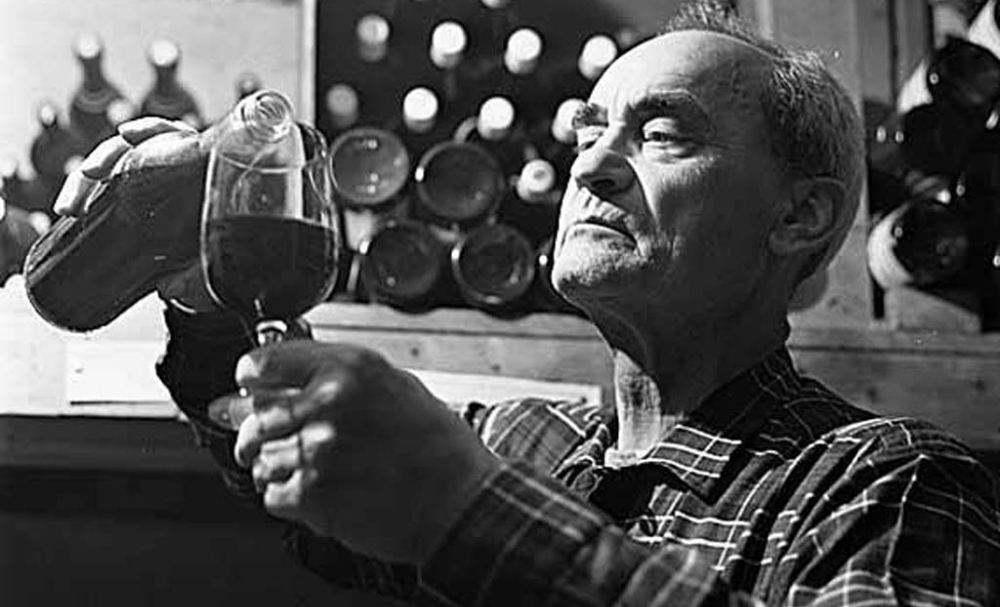Italy’s rich traditions – from kitchen aromas to history – permeate virtually every corner of the earth. The Pacific Northwest shares that Italian influence, usually through the immigration of hard-working, ambitious sons and daughters of Italia. One example: Seattle’s famous Pike Place Market is to a large extent the creation of Italian farmers and entrepreneurs. Our history of elected officials is top-heavy with Italian names.
One prime example of local Italian influence was an educator named Angelo Pellegrini. Raised in the lumber community of McCleary, Washington, young Pellegrini was steeped in the traditions of his Old World family, and his New World offered a rare opportunity. Receiving his B.A. and Ph.D degrees at the University of Washington, he taught English literature at his Alma Mater for many years, famous for his lecture on what would have been served at MacBeth’s banquet.
If it can be called “spare time,” Pellegrini used other hours to research, to cook, and to write. The Unprejudiced Palate, published in 1948 and re-issued several times, places the reader at a simple kitchen table. Lessons emerge about cultivating Windsor beans, fresh chicken, savoring and rating a heavy zinfandel wine, and mincing and basting everything else.
In his books Immigrants Return and Americans by Choice Pellegrini celebrates the Italian character combined with his obvious joy at being an American citizen.
If you have never tried polenta with rabbit in mushroom sauce, Angelo Pellegrini should be your guide. Or tour the Napa, Yakima, or Willamette Valleys with his short, concise lectures on the differences between Folle Blanche, Barbera, and Beaujolais. Professor Pellegrini will suggest that you combine sharp Romano cheese with milder Parmigiano over a well-drained pasta. He also warns the chef to have three ingredients on hand when preparing a fish dinner, any fish dinner: Worcestershire, Tabasco, and white wine.
Winner of a Guggenheim Fellowship and many other awards, Pellegrini wrote about our lives in a changing world with the anchors of delicacies of the palate, the joy of reading, the precious bonds of family, and bursting nature. Combined, these adventures and experiences add up to love. He referred to immigrant’s thrift and resourcefulness as a “cubicle of temperance.” When Angelo Pellegrini became lost on a mushroom hunt it was a blessing, a discovery, a victory.
No longer with us in person during our journey through life, he died in 1991. Even so, Angelo Pellegrini’s books and wisdom are close at hand. They are perfect for immigrants and old families alike.
Discover more from Post Alley
Subscribe to get the latest posts sent to your email.

I consider Angelo Pellegrino one of the reasons that Seattle became our home in the early ‘70’s. We were living in The Other Washington while I considered education options for graduate studies. The University of Washington was, itself, a sufficiently attractive prospect for me, but convincing my wife that a cross country move was a good idea — that could have been a hard sell. Then my wife and I read (‘devoured’, literally and figurative sense) his delightful book, “The Food Lover’s Garden,” and dreamed of living in a place of natural beauty and bounty, where a simple garden plot could yield such pleasures as Pellegrini described. We rented a Ryder truck and traveled west, with dreams of finding a place of our own, with sunset views and growing a backyard bounty of berries, beans and tomatoes and who knew what other delights. Lucky us.
A man who had artichoke plants in his yard in Seattle when few people here had ever so much as eaten one. Also responsible for the beginnings of the Washington wine industry. We should name more stuff after him…
I interviewed the professor about his culinary exploits for the University Herald many years ago and was invited to join him at his luncheon table, I was served a delicious lunch and sipped a home-brewed wine. It was a magical day never forgotten.
Years later, after his death, there was an estate sale in his View Ridge home (the one where he grew artichokes, among other vegetables.) I wanted to have a souvenir and bought a simple pancake turner, which I still have and use in his memory. Thank you for inspiring us all, Angelo.
Pellegrini beans are sprouting as I type, descendants of a small packet I received years ago as a parting gift after a dinner at The Herbfarm. I grow a plant or two every year, just to keep the tradition going.
Having never heard of Pellegrini beans, I looked them up.
Here’s where to get the seeds:
https://www.seattletimes.com/pacific-nw-magazine/formerly-little-known-pellegrinis-and-rockwells-are-the-magical-beans-seattle-food-nerds-cant-do-without/
https://uprisingorganics.com/search?q=pellegrini+beans&type=product